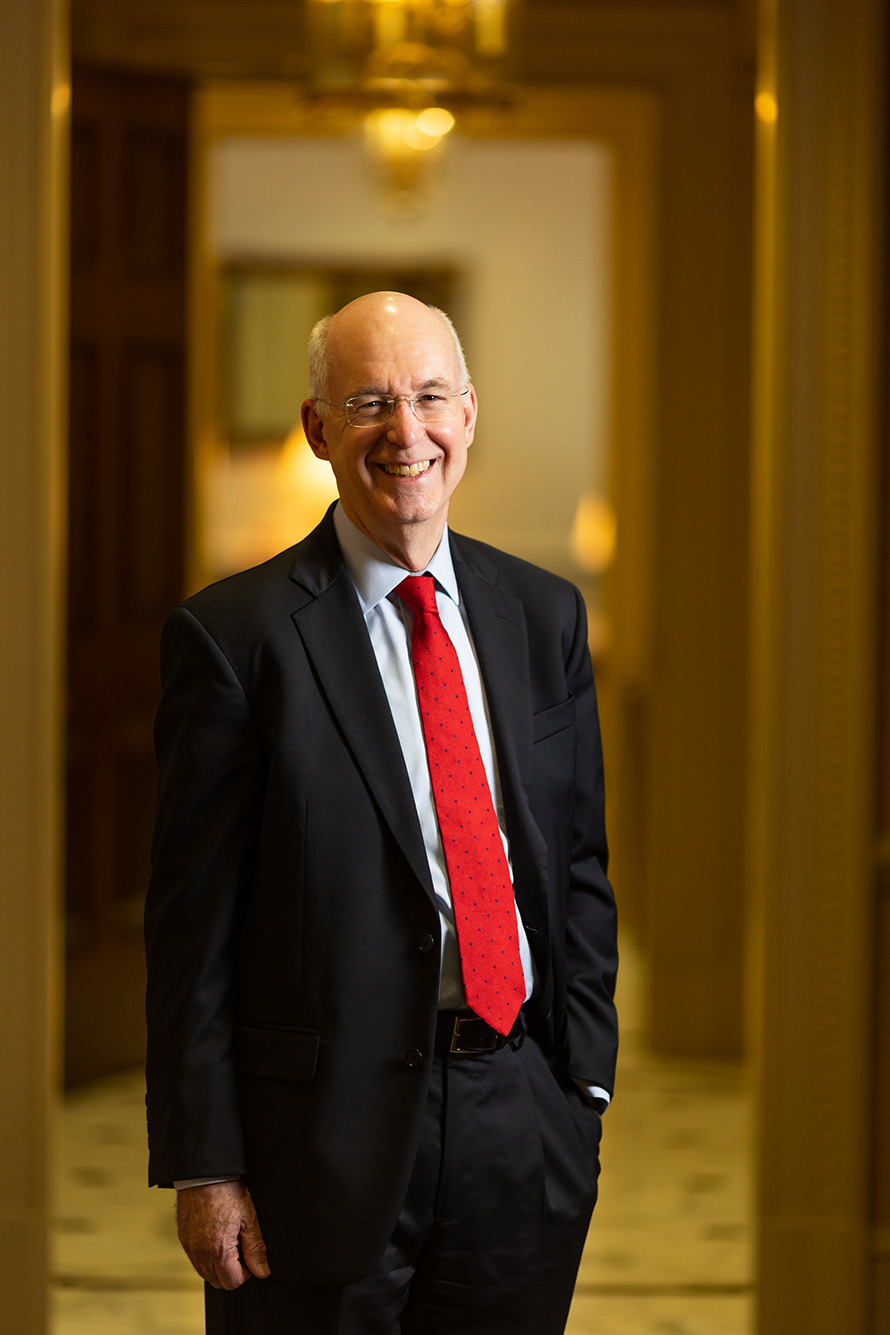Seeking Campus of “Dignity, Fairness, and Respect,” President Freeman Addresses Israel-Hamas War

Seeking Campus of “Dignity, Fairness, and Respect,” President Freeman Addresses Israel-Hamas War
In letter to BU community, interim leader outlines steps being taken to ensure a safe and secure campus
With the start of Boston University’s spring semester Thursday following a fall semester marked by protests, vigils, and graffiti in reaction to the war between Israel and Hamas, Kenneth Freeman, president ad interim, sent a letter to the BU community, outlining initiatives underway to “ensure a safe and secure campus” that “treats each other with dignity, fairness and respect.”
(Read the full text of the letter here.)
“It is likely that the Israel-Hamas War will continue for some time and will cause elevated stress and significant discomfort for many Jewish, Israeli, Palestinian, Arab, Muslim, and other concerned members of our community, some of whom have family members directly and indirectly impacted by the conflict,” Freeman writes. He notes that during the fall, he met multiple times with groups of BU students “to listen to concerns and respond to specific issues that were raised.”
His letter acknowledges that those concerns won’t disappear anytime soon, and he says he hopes the steps BU is taking (including a new website) will address some of the issues he’s heard raised.
In an email to BU Today, Freeman says he wrote the letter to show that BU is doing more than talking about solutions. “I felt it important to further articulate our commitment to becoming a more cohesive community in a highly divisive world, and to go beyond rhetoric to outline several related initiatives,” he says.
The war that began with a deadly attack against Israel by Hamas on October 7 has claimed more than 24,000 lives, according to the Palestinian Health Ministry, and another 60,000 have been injured. The war has roiled college campuses across the United States, igniting fierce debate about how colleges and universities are handling calls of antisemitism and what steps they are taking to help their students feel safe.
While Jewish students have demanded that their leaders issue forceful condemnation of Hamas militants after their deadly and brutal attacks on Israeli soldiers and civilians, Muslim students have been just as vocal. They have sought what they believe is long-overdue recognition of Palestinian suffering in Gaza and have accused higher education leaders of using watered-down language in describing attacks in Gaza. That tension played out at BU last fall with various protests and sit-ins and graffiti on buildings, including one at BU Hillel now being investigated by authorities as a hate crime.
Freeman lays out three specific steps BU is taking to foster improved dialogue and a more civil, inclusive campus community:
“Our goal above all else continues to be ensuring that our campus and community are safe and that we—together—maintain an environment in which there can be spirited advocacy, debate, and discussion that is civil, informed, and rooted in the shared acknowledgment of our common humanity,” Freeman says in his letter.
One point he emphasizes, however, is that none of the new steps being taken are intended to replace or override BU’s existing Statement on Free Speech and Expression. That statement was approved in 2020 by the Board of Trustees, and it describes the University’s core belief that “the remedy for speech that some may find hurtful, offensive, or even hateful is not suppression of speech, but more speech.”
But, he says, even broad free speech protections do not provide blanket permission for people to say or do anything and that those protections “carry with them a certain responsibility for each of us to exercise that freedom thoughtfully and with the clear recognition that intemperate or hateful speech can have deeply harmful consequences for other members of our community.”
Referencing instances of doxing on campus, which he describes as “a particularly pernicious and ugly phenomenon that shatters the privacy and security of members of our community,” Freeman says BU will follow up diligently on any reports of doxing actions or behavior.
“Doxing is of particular concern, as it serves to replace dialogue and civility with shame and intimidation,” he writes. “Expressions of antisemitism and Islamophobia will not be tolerated on our campus.”

Comments & Discussion
Boston University moderates comments to facilitate an informed, substantive, civil conversation. Abusive, profane, self-promotional, misleading, incoherent or off-topic comments will be rejected. Moderators are staffed during regular business hours (EST) and can only accept comments written in English. Statistics or facts must include a citation or a link to the citation.